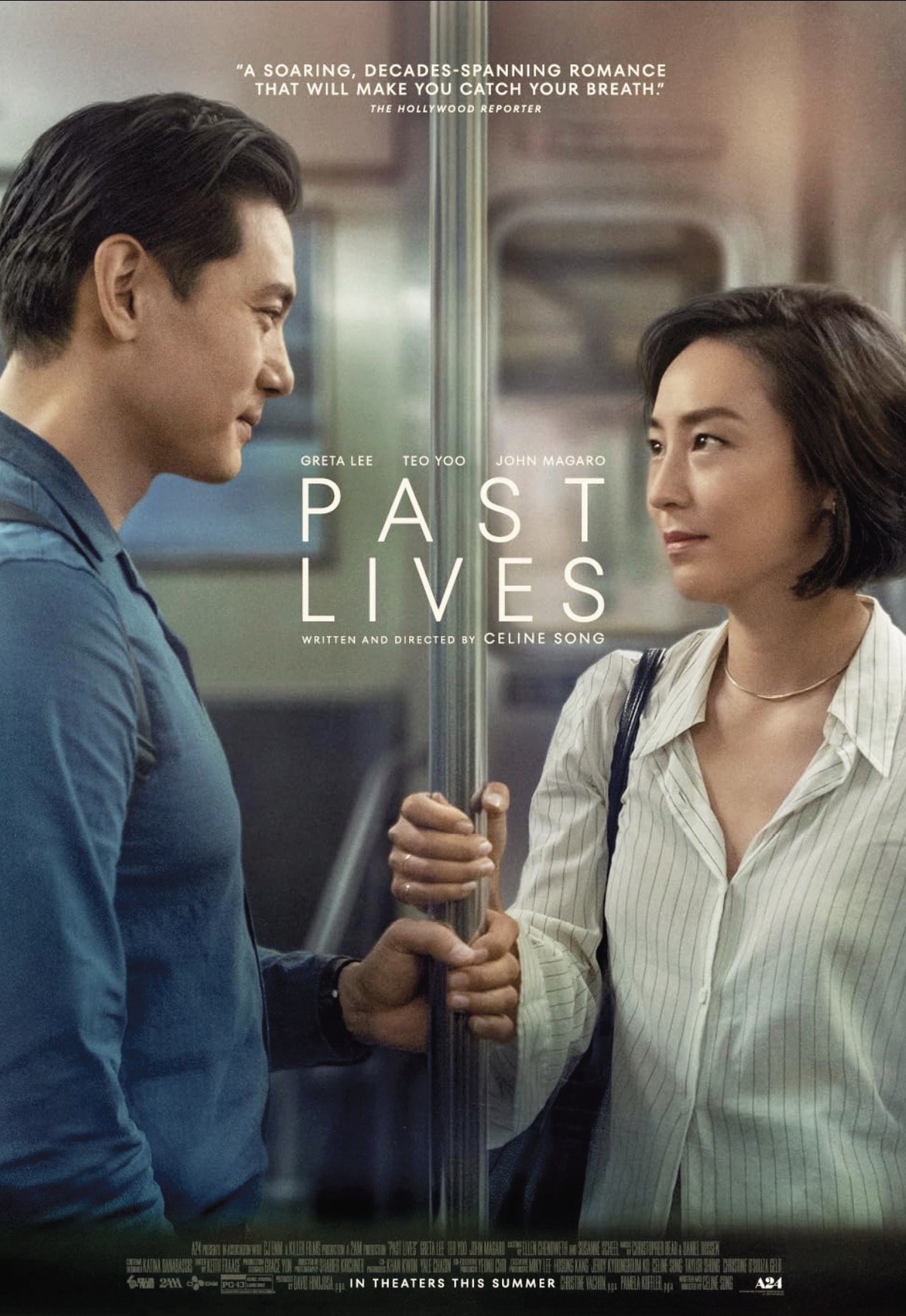Hope you all had a wonderful Fourth of July. Now that the summer is in full swing, the multiplex has been finding it hard keeping interest up. Recent blockbusters have gone bust from the Fast franchise to Marvel. Studios seem hellbent on hurtling down this well-worn road, with little heed to what audiences are saying with their dollars. But can theaters continue on this trajectory as well? Hopefully managers will see that counter-programing might be the only thing keeping them afloat. Here are some recent examples that might hold your attention on those silver screens.

Celine Song’s feature debut Past Lives has created a bit of a stir. People and Empire have done interviews and there has been great word-of-mouth. And after watching, it is easy to see why. The basic premise is a story of two Koreans, a man and a woman, who met as children only to be separated when her parents emigrate to Canada. Twelve years later they find each other over Skype and reacquaint themselves. Life gets in the way again, and it is not until another twelve years that they reunite. Except everything has changed now.
Greta Lee plays Nora with such stoic yet heartfelt feelings that it is hard not to relate to her. This man, Hae Sung (played by Teo Yoo), is both familiar and foreign. Not exactly the same person she remembers as a child, yet he gives Nora this wondrous sense of yearning that is palpable. Song opens her film cleverly from an outsider perspective, a scene that we will see differently as things progress. And even here Lee effortlessly draws us in. With no dialogue from her, her face speaks volumes.
Credit is due to Shabier Kirchner’s camera work, creating meditative establishing shots instead of the standard landmarks and signifiers. They are not just about orientation but evocations of mood and characters’ states of mind. Also, Christopher Bear and Daniel Rossen’s light score filters into each scene, augmenting each emotion instead of taking its place. It is Lee, Yoo, and John Magaro (who plays Nora’s husband later) that dominate this movie. The aforementioned scene serves as both climax and resolution. Who are we to the people we meet along our journey? It is a question that will still haunt you well after the credits are over, but it is a friendly wistful spirit.
From a film full of emotive power to one of the driest you’ll see this year, that being Asteroid City. And this is not only a comment on the arid setting taking up most of its runtime. As trailers would have you believe, Wes Anderson’s eleventh feature should be about a convention of young science innovators in the American Southwest. All is true, to a point. Much like his pervious The French Dispatch, Anderson wraps the central story in a framing device so impenetrable you start to wonder if he is sabotaging his own film.
As always, his storybook style of color saturated landscapes and quirky characters abound. But why the stage play framing? Yes, he has used theatre, books, and radio as devices before. He seems more interested in those than proper character development lately. In the main story, Jason Schwartzman should be the emotional bedrock. Wes, however, flips between him as father character and fictional actor; splintering any chance at our empathy.
As you may have noticed, I have not spoken about junior scientists or wayward parents much yet. Because I am not sure Wes even cares about these things. It all seems like a jumping off point for philosophical musings on the state of fiction. If you are already not a fan of Anderson’s work, this is not going to change your mind. But for those who miss the days of gifted yet fractured New York families or grand European hotels, you will be sadly disappointed too. Please come back to us Wes.



